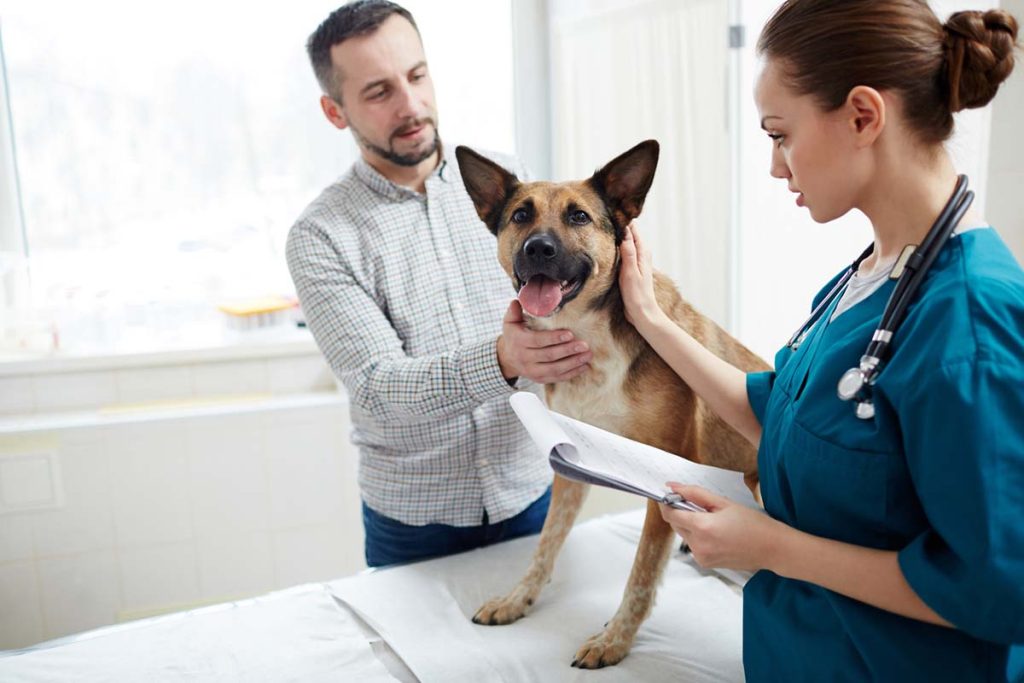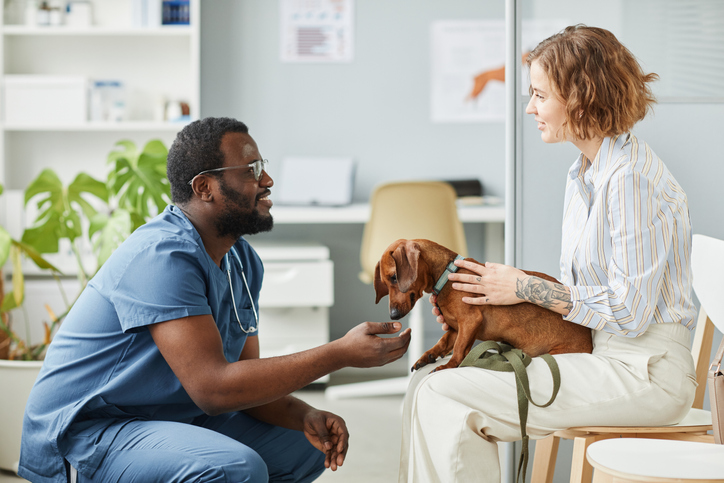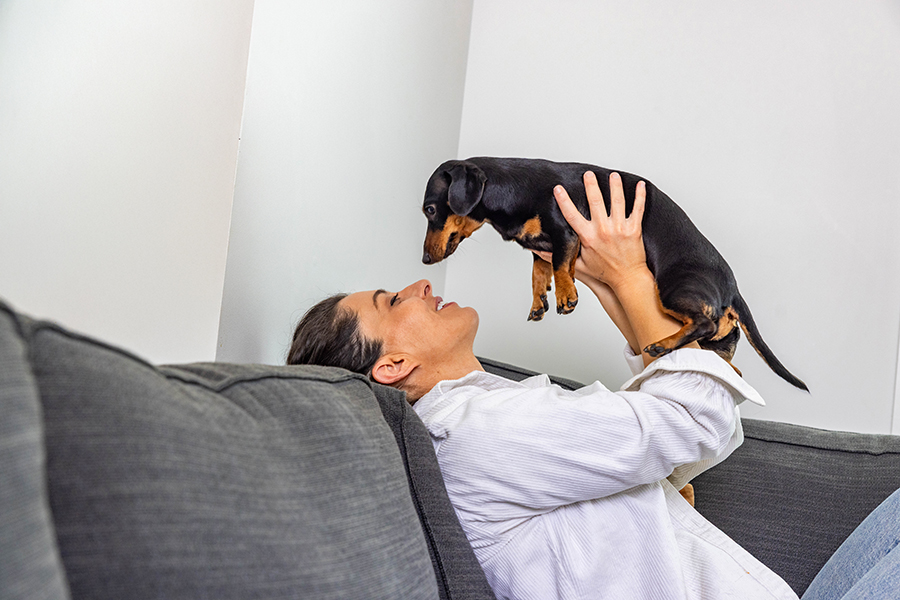5 Key Questions to Ask a Vet
When a new furry family member enters your life, these are the questions to ask a vet first.
There is no doubt about it: Our pets are our family, and we want them in our lives for as long as possible. To keep them in good health, we turn to our wonderfully skilled veterinarians to help us along the way, but we must also help them by asking the right questions.
Just like with our own health, new pets need preventative care. Our furry friends also need vaccinations, blood work, and annual checkups to prevent or detect any major health concerns or common diseases. Since our pets can’t tell us how they feel, it is up to us as pet parents to watch out for any unusual signs and ask the appropriate questions to hopefully catch any health issues before they begin.
Just as you would for your own doctor, try jotting down a list of questions in regard to your pet’s health to ask your vet. Bringing up some of these important topics at their next vet visit could make a world of difference.

1. How much exercise/play does my pet need?
Just like humans, no two animals are alike. Depending on their age, size, dog breed, and overall health, their exercise needs will vary. That is why it is important to talk to your vet about how much exercise your specific pet will need. Insufficient exercise can cause joint pain and obesity, while too much can be taxing on the body.
For example, dogs bred to work, such as retrievers or collies, will require more exercise than smaller, more sedentary breeds such as a pug or Shih Tzu. Additionally, larger breed dogs tend to have more joint problems and may need extra joint support, especially if they are very active.
2. What can I do about dental care?
Dental disease is very common in pets; some breeds can even be more susceptible to bad teeth. Poor dental health can cause a myriad of health concerns including gingivitis, tooth loss, and organ issues, so it’s best to catch it early.
According to the American Veterinary Medical Association, your dog’s teeth should be checked at least once a year to determine if professional dental cleaning is needed. The AVMA suggests pet owners see their vet if they encounter symptoms such as swelling of the gums, bad breath, reduced appetite, mouth bleeding, and more.
These symptoms can be preventable. The best way to avoid major dental issues in the future is by daily brushing. Items that claim to clean teeth such as bones and rawhides can actually cause blockages and do more harm than good. If daily brushing is not possible with your cat or dog, your vet may have alternative methods you can use to keep your pet’s teeth healthy as can be!
3. Is your pet at a healthy weight?
In the United States alone, over 50 million dogs are overweight or obese. We know those puppy dog eyes and tiny meows can be very persuasive, especially when it comes to feeding time, but maintaining your pet’s weight is crucial to keeping them in good health. You can reduce your pet’s risk of diabetes, cancer, kidney disease, and more just by keeping them at a healthy weight.
Many pet parents are not sure what exactly their pet’s “ideal” weight is, and that is OK! Your vet can look at not only your pet’s weight on the scale but how their body looks and feels to establish whether or not they require a special diet and/or exercise regimen.
Excessive weight gain can also be a sign of other health conditions such as Cushing’s disease and hypothyroidism, so it’s always a good idea to schedule an appointment if you cannot get to the root cause of your pet’s weight issues.
4. What kind of pet food should they be eating?
Feeding your pet a completely balanced diet is the first step to a healthy life for your cat or dog. When choosing a type of food, consulting with your vet is vital—if your pet has health concerns such as kidney disease, pancreatitis, IBD, etc., you will want their diet to help manage the disease. Be wary of dog foods that claim to be natural or have fillers or preservatives, as these will not help your dog or cat nutritionally and can make any health problems worse.
JustFoodForDogs believes a human edible and nutritionally balanced diet — especially one that has been scientifically proven to boost the immune system — will give your pets everything they need for overall health and wellness. When health concerns are present, deferring to your vet about diet changes is always suggested.
If you have any questions about switching to whole foods, feel free to reach out to us seven days a week at (866) 726-9509 or via our contact us page!
5. What preventatives does my pet need?
For your first visit to the veterinary clinic, remember to ask about what preventatives your pet should be on and how often. These range from heartworm prevention and vaccinations to flea and tick prevention.
Keeping Your Pet Healthy

Being prepared for your pet’s first vet appointment will help bring peace of mind in learning how to care for them. As pet parents, we all want the best for our pet’s life so they can be happy and healthy in the long run.
If you are worried about the expense of pet care, consider exploring various pet insurance options available. Read our recommendation.








